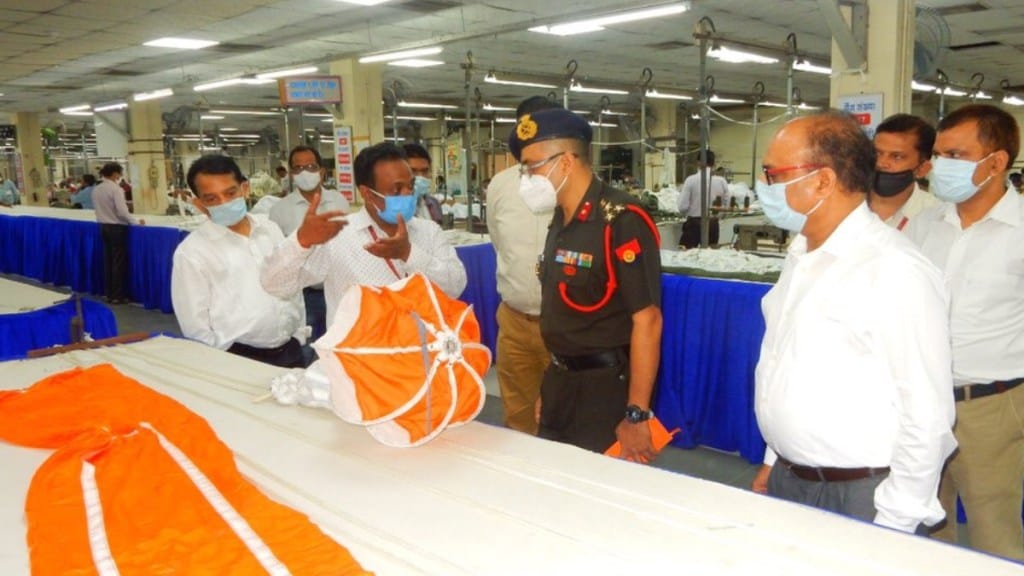India has taken another significant step towards self-reliance in the defence sector with the Ordnance Parachute Factory (OPF) in Kanpur now manufacturing parachutes for fighter pilots of the Tejas aircraft. This marks a major milestone in India’s efforts to reduce dependence on foreign imports for critical defence equipment.
Until now, the Indian Air Force relied on parachutes from Europe and the United States to ensure the safe ejection of pilots in emergency situations. However, with the new development, the pilots of Tejas will no longer need to depend on imported systems. The parachutes, specially designed for the high-speed Tejas fighter jet, will allow pilots to safely return to the ground in case of an emergency ejection at speeds of up to 2205 kilometers per hour and altitudes of up to 50,000 feet.
Engineers at DRDO’s Aerial Delivery Research and Development Establishment (ADRDE) were instrumental in designing the parachutes, which were then manufactured by OPF Kanpur, a unit of the Ministry of Defence’s public sector enterprise, Gliders India Limited. The parachutes are designed to work seamlessly with the ejection systems of the Tejas aircraft, ensuring the pilot’s safety during high-speed operations.
The new parachutes are not only of international quality but are also more cost-effective. While imported parachutes can cost up to several lakhs, the parachutes being manufactured at OPF are priced at approximately 8 lakhs each, which is nearly half the cost of foreign-made ones. Despite the lower cost, the parachutes meet international standards for strength and reliability, ensuring the safety of the pilots during critical situations.
OPF has become the first factory in Asia to produce such high-quality, low-cost pilot parachutes for advanced fighter jets. These parachutes weigh around 8 kg and have a total length of approximately 12 meters. They are designed to be used in various fighter jets like the Tejas, Sukhoi, Mirage, Jaguar, and MiG, with both pilot and brake parachutes being produced for different aircraft.
In an effort to further promote self-reliance and women’s empowerment, OPF has also set up a separate workshop dedicated to the production of pilot parachutes for Tejas aircraft. This initiative has provided employment to 65 women, contributing to the government’s push for greater gender inclusion in defence manufacturing.
With this achievement, India continues to make strides in enhancing its defence capabilities while fostering self-reliance in critical sectors like aerospace technology. This new development is expected to play a key role in ensuring the safety of fighter pilots while also reducing the nation’s dependence on foreign defence equipment.


